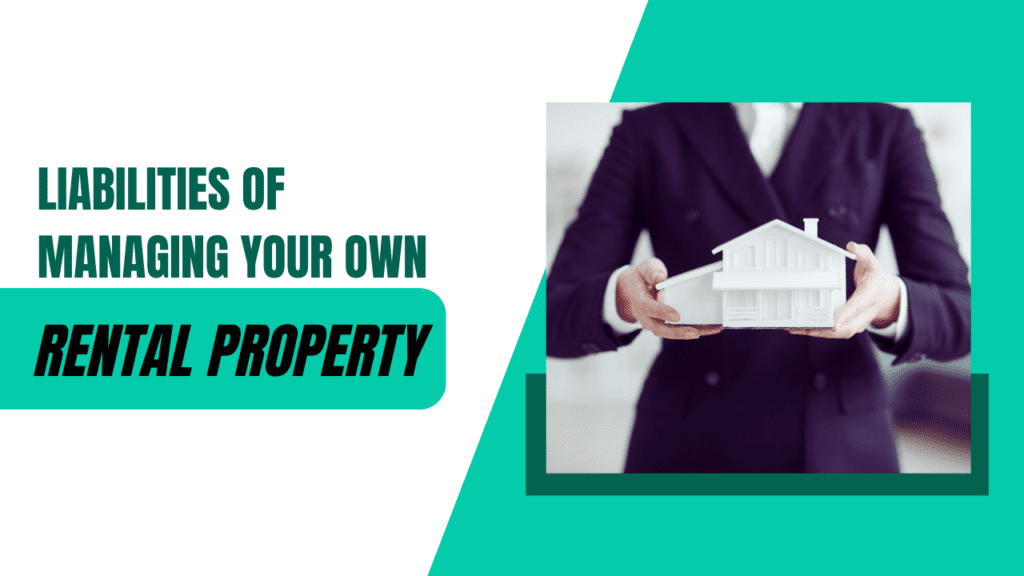
Managing your own Los Angeles rental property is risky. There’s a lot of liability involved, especially if you don’t know the laws or understand the requirements of landlords.
Mistakes are easy to make, and unfortunately, those mistakes are often expensive. They’re difficult to fix. We want to talk about some of the liabilities that come with managing your own property so that you’ll consider the benefits of professional management.
Renting out a home seems easy enough. But, it’s often more complicated than expected, especially if you’re stuck with a bad tenant or falling behind with the repairs that your property needs.
Here’s why self-management isn’t always the best (or most cost-effective) idea.
Establishing the Wrong Rental Values for Los Angeles Homes
We are always surprised when we talk to self-managing landlords who never raise the rent. Sometimes, they’ll have the same tenant in place for many years, and they fear losing that tenant. So, they’ll renew the lease agreement at every cycle without implementing even a tiny increase.
That’s a lot of income lost over the years.
You have to raise the rent. You’re keeping up with the increased costs of doing business.
On the opposite end of this problem is the landlord who sets rent too high or doesn’t understand that rent control laws are now statewide.
Always raise the rent to stay competitive with market rates. But, don’t raise it so much that you lose your tenants or violate rent control laws. Before you establish your rental value, conduct a full evaluation of the market so you know what tenants are paying for similar homes.
Setting your rent higher than what the market allows will only result in one of two things:
- A longer vacancy period. That’s a liability because it’s expensive. Refusing to be flexible on your rental amount means losing an entire month of rent – maybe even several months of rent.
- Unqualified tenants. The only residents willing to pay rents that are higher than market rates are those tenants who are declined for properties elsewhere.
Work with a property manager to get the most profitable, accurate, and competitive rental rate in place.
Neglecting Tenant Screening
Placing the wrong tenant is a huge liability for property owners. With a bad tenant living in your home, you’ll have to chase down late rent, worry about lease compliance, and probably clean up a lot of property damage. Make sure you’re finding and placing the best possible tenants.
We’ve talked with self-managing landlords who collect rent and hand over the keys without getting an application, running a background check, or pulling a credit report. This is a huge risk. You have to know who is living on your property. You don’t know who the tenant is or where they work if you don’t do a thorough screening.
- Check credit so you can be sure the tenants don’t owe money to former landlords. You’re not looking for perfect credit, but you want to know they’re responsible with money and with their housing-related bills.
- Check income and verify it with pay stubs, bank statements, and tax records. You have to know the tenants can afford their rent.
- Look for past evictions and criminal convictions.
- Talk to former landlords.
If you don’t have the resources or time to do this type of screening, you need to give up self-management and work with a property manager.
Are You Requiring Rental Insurance?
Insurance is an excellent way to protect yourself and your property. Make sure you have adequate coverage for your property and your own liability. If your property value has increased over the last year or two (and it probably has), you may need to adjust what your coverage limits are.
It’s a mistake not to require renter’s insurance from your tenants. This protects them against the loss of or damage to any of their own property. It also comes with liability protections, so that if they cause an issue and your property is damaged, their insurance will kick in before yours does.
Legal Liability and Los Angeles Rental Homes
California has a lot of strict laws when it comes to renting out a property. It’s not always easy to keep up with these laws, and sometimes just knowing them isn’t enough. You have to follow how they’re interpreted in court.
To effectively rent out a home, you need to understand:
- California’s rent control law. Some properties are included and others are exempt. There are limits to how much you can raise your rent every year.
- Just cause eviction laws. When you need to evict a tenant, it has to be for a good reason, such as nonpayment of rent, lease violations, or criminal activity. Evictions need to be handled very carefully. We do not recommend you pursue one without the help of a property manager or attorney.
- Section 8 requirements. You can’t decide that your property isn’t available to Section 8 tenants. Recent laws require you to consider applications from tenants who have Section 8 benefits. They can use their housing vouchers as income.
- Fair housing. Fair housing laws in California are even stricter than the fair housing laws that the federal government established. You need to know the protected classes and how your leasing, screening, and even marketing process must comply.
- Service animals and companion animals. These are not pets. They’re accommodations. That means you must allow them and you cannot charge a pet fee or pet rent.
- Security deposit laws. There are limits to what you can collect, and there are requirements specific to how you return security deposits – and when. Mistakes here lead to huge liabilities and large penalties.
 There’s a lot at stake when we talk about rental laws in California. The potential for legal risk is pretty huge. Protect yourself by partnering with an experienced Los Angeles property manager. You’ll have a safer and more profitable rental experience.
There’s a lot at stake when we talk about rental laws in California. The potential for legal risk is pretty huge. Protect yourself by partnering with an experienced Los Angeles property manager. You’ll have a safer and more profitable rental experience.
As you can see, it’s easy and common to make mistakes when you’re managing your own property. If you’d like to avoid much of this liability, please contact us at Earnest Homes. We’d love to tell you more.
